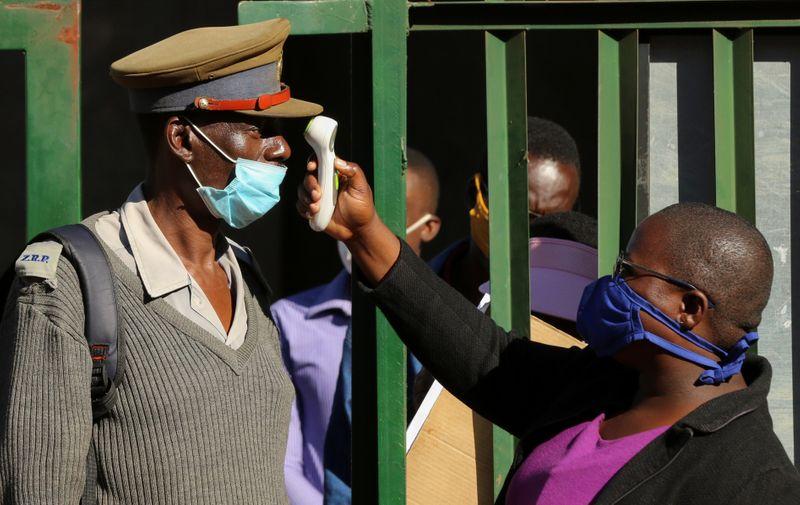
A person checks a policeman’s temperature during a nationwide lockdown to help curb the spread of the coronavirus disease (COVID-19) in Harare, Zimbabwe, May 14, 2020. REUTERS/Philimon Bulawayo
The southern African nation, which has reported 42 cases and four deaths from the novel coronavirus, went into lockdown on March 30 and has been gradually easing the measures to help revive its troubled economy.
Economic fallout from the coronavirus outbreak will exacerbate climate-induced shocks and monetary woes afflicting an economy battling shortages of foreign exchange, food electricity and medicines.
“Zimbabwe will… continue on the level two lockdown for an indefinite period. The country needs to ease out of the lockdown in a strategic and gradual manner,” Mnangagwa said in a live broadcast.
He said informal street markets, where millions of Zimbabweans eke a leaving selling everything from used clothes to vegetables, will remain shut while the government consults health specialists on how to reopen them safely.
Businesses such as manufacturers, supermarkets and banks, which have been allowed to continue operating, will now be able to work between 8 a.m. and 4.30 p.m. compared with the six-hour day imposed previously.
Shared taxis will remain banned, forcing commuters to use buses operated by the state, which have struggled to cope with demand.
Mnangagwa said the hundreds of Zimbabwean migrants returning home every week, mainly from South Africa and Botswana, will have to undergo a 21-day quarantine in school and college buildings set aside for the purpose.
The president said only students writing final examinations this year would be allowed to resume classes but did not say when. The government is still working on plans of phased re-opening of schools.
Post published in: Business

